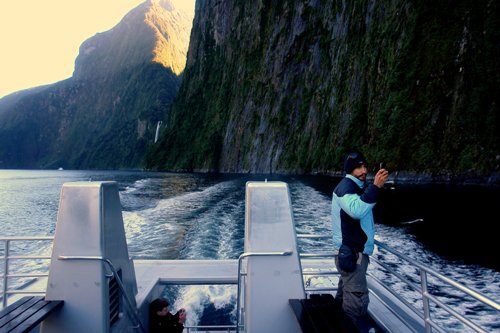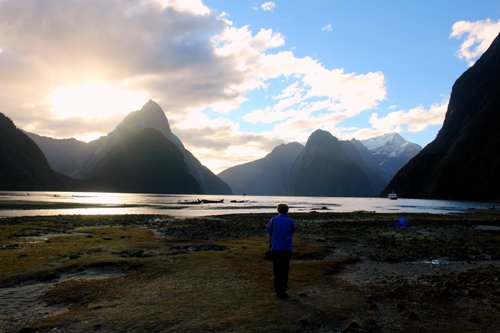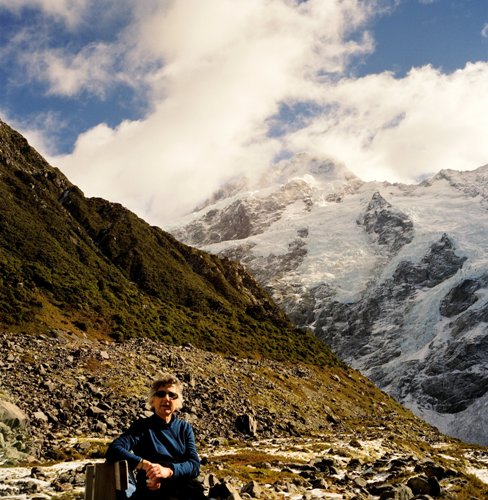|
May 15, 2008
When you return home to the country of your birth for a holiday after a couple of decades living in Australia are you a tourist? Or an expatriate? I'd seen myself as a tourist; or rather I wore the mask of an international tourist and traveled on an Australian passport.
 Gary Sauer-Thompson, tourism, Milford Sound, New Zealand, 2008
Gary Sauer-Thompson, tourism, Milford Sound, New Zealand, 2008
But I was really an ex-pat as I still was an NZ citizen in my own country. An expat looking at the culture of international tourism I was a part of, noticing the way the landscape is mediated by the diverse images of it. These images of iconic tourist sites are everywhere and we were surrounded by these cultural codes that said 'NZ wilderness.'
We tourists all ended up at the same coded, iconic location. We used our digital cameras to take our photos from the carefully constructed locations (a scenic platform, boat, foreshore walkway, or walking trail). Our images were similar kinds of pictures and they had a lesser quality to the carefully crafted tourist ones that we had seen as we traveled to the desired iconic location.
 Gary Sauer-Thompson, tourist photography, Milford Sound, New Zealand, 2008
Gary Sauer-Thompson, tourist photography, Milford Sound, New Zealand, 2008
The core tourist spaces, such as Queenstown, indicated that, from a spatial relations perspective, space is not neutral within consumer capitalism---the different spaces we traveled through had different relationships of power, embody different meanings and codes. I kept on thinking about the spectre of tourism taking philosophy from behind amidst these deterritorialised flows of global capitalism.
Isn't the history of philosophy as a kind of “buggery--as Deleuze argued? What would result from such an encounter I wondered? Something quite different no doubt. That repetition involves the instantiation of difference? Maybe a turning away from the calculable and the numerable? Or that philosophy has a sado-masochistic complex, whose will to power, desires to live its own life of rationality by overthrowing law and custom? Or the emergence of bodily experience and the way in which subjectivity emerges through embodied creative desire amidst the regional flows of global capitalism.
If the movement of desiring tourist bodies through this space was part of the flow of global capitalism, then It is around these diverse coded global flows that we sense the powers of capital to remake space and time (to continue making profits). Wilderness was constructed as a space of capital’----a coded landscape of modern capitalism as it were.
 Gary Sauer-Thompson, Suzanne, Mt Cook, 2008
Gary Sauer-Thompson, Suzanne, Mt Cook, 2008
Even as we yearned (productive desire) to experience nature as external to the hegemonic discourses, power structures and lives of consumer society (to experience wilderness), we realized that this experience was what was being sold to us in different tourist packages. Our desires were being channeled and coded by the interests of those making money from the flow of tourist bodies.
What we could do is to experiment with was is, to create something new from within the multiplicities of the coded flows.
|

did you create something new?